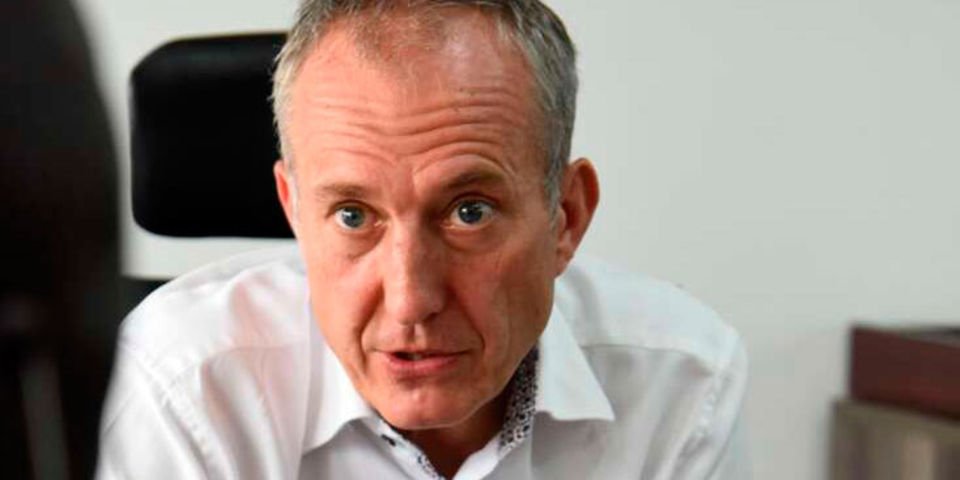Nation Africa
The government of Kenya Wednesday signed deportation papers for Rubis Energie Kenya Managing Director Jean-Christian Bergeron as it fought back against oil marketers it accused of abetting a petroleum crisis through hoarding and higher exports despite shortages in their domestic retail outlets.
High-ranking government sources told the Nation that the MD is accused of economic sabotage, a serious charge that attracts a prison term of up to 10 years as well as a Sh1 million fine.
It was not clear if Mr Bergeron was immediately deported as per the order. Attempts by the Nation to get his comment were not successful by the time of going to press. Calls and text messages to his mobile number went unanswered.
Sources explained the government cracked down on Rubis which it blames for fuelling the crisis given it has a huge share of the local market. The firm is accused of blackmailing the government by demanding higher compensation yet a large consignment of its fuel had reportedly been imported before global prices shot up.
Import quota cuts
This comes just a day after the state approved chops on the import quota allocations of select oil firms as punishment for abetting the petroleum crisis through market distortion. The Petroleum ministry on Tuesday gave a nod to the Energy and Petroleum Regulatory Authority (Epra) to punish some rogue dealers suspected to have caused an artificial shortage in the domestic market.
“We have reviewed your recommendations and wish to inform you that this ministry has no objection to the proposed measures. Please, expedite,” the ministry said in a letter seen by the Nation.
Epra Director-General Daniel Kiptoo, in a letter to Petroleum Principal Secretary Andrew Kamau, said the regulator had identified firms that had chosen to export fuel at the expense of local consumers.
“Epra has analysed the daily petroleum loadings over the past four weeks and noted that a number of oil marketing companies have in the period under review given priority to export loadings, while the local market was left to suffer intermittent supply,” Mr Kiptoo said in the letter dated April 12.
“Epra hereby recommends that in the allocation of capacity for the next three import cycles, key consideration should be given to reduction of capacity share for all OMCs who increased their transit volumes over and above their normal quota during the supply crisis period.”
Tough times
The ministry approved the request, setting the stage for tough times for the oil companies, including Rubis, which have been linked to the crisis.
Meanwhile, the government was yesterday caught in a dilemma on how to end the fuel crisis even as Kenyans waited with bated breath for the products’ prices as the regulator sets new rates later today. High-ranking government officials were yesterday locked in deliberations on how to price the product.
A source said unless the government intervenes with the subsidy, petrol prices could rise by up to Sh40 per litre, a change that would put the price of fuel at Sh170 up from the current Sh134.72.
Government officials are at pains to balance the interests of Kenyans on one hand with a rise in fuel prices sure to see the cost of living rise to a new level, and the interests of oil marketing companies who are digging in and diverting their product for export.
Hoarding
Some sources have blamed the crisis on hoarding by some marketers seeking to sell their supplies at a higher rate to cut losses.
Epra last month increased the price of petrol and diesel by Sh5 which saw their costs jump to a historic Sh134.72 and Sh115.6 per litre, respectively, while the cost of kerosene was unchanged. It is said that consumers would have paid a record Sh155.11 for petrol, Sh143.16 for diesel and Sh130.44 for kerosene had the state not intervened.
However, the government is aware of the serious national ramifications a steep increase in fuel prices would cause, especially just four months before the August elections. However, the subsidy kitty is running dry with government officials terming the fund “unsustainable”.
“Moving forward the situation might get out of hand. Every single month there’s going to be a need for an extra Sh10 billion, sometimes even Sh15 billion to subsidise fuel prices,” Treasury Cabinet Secretary Ukur Yatani said in an interview with NTV last week.












